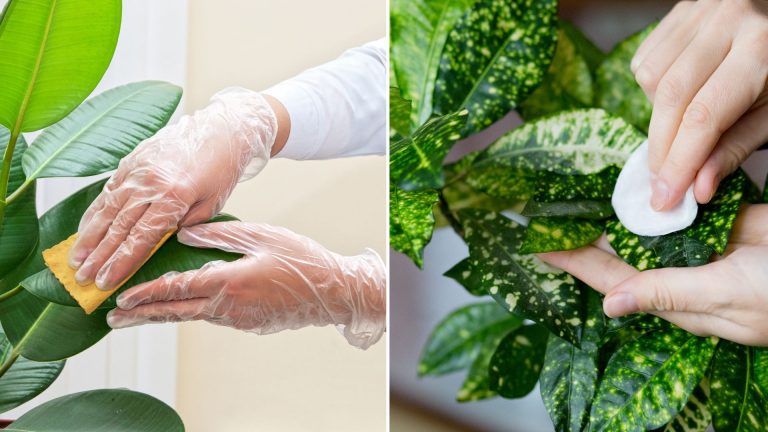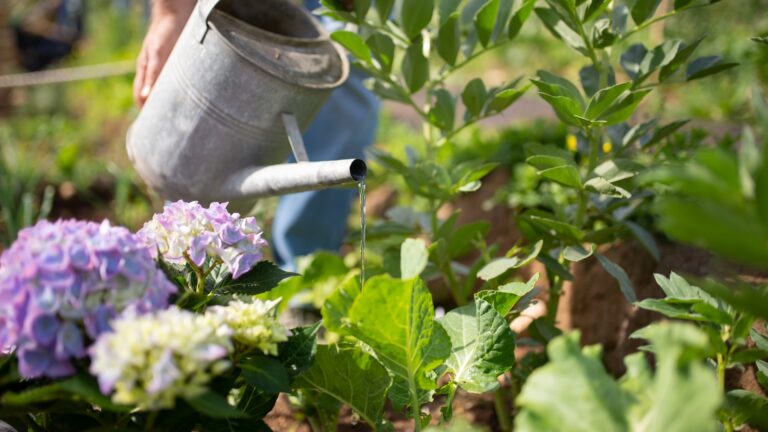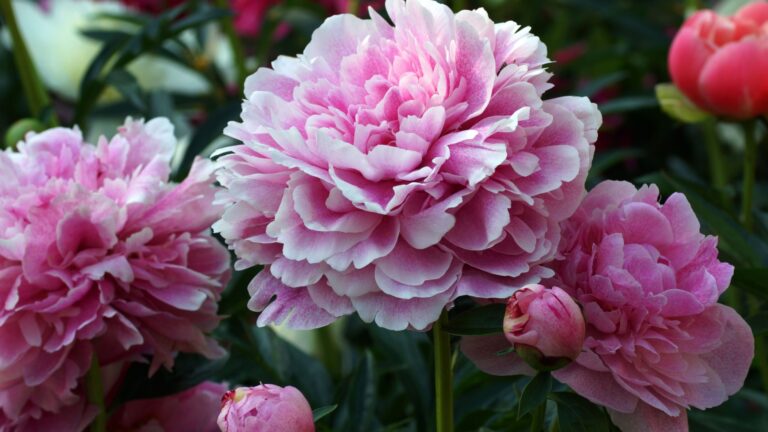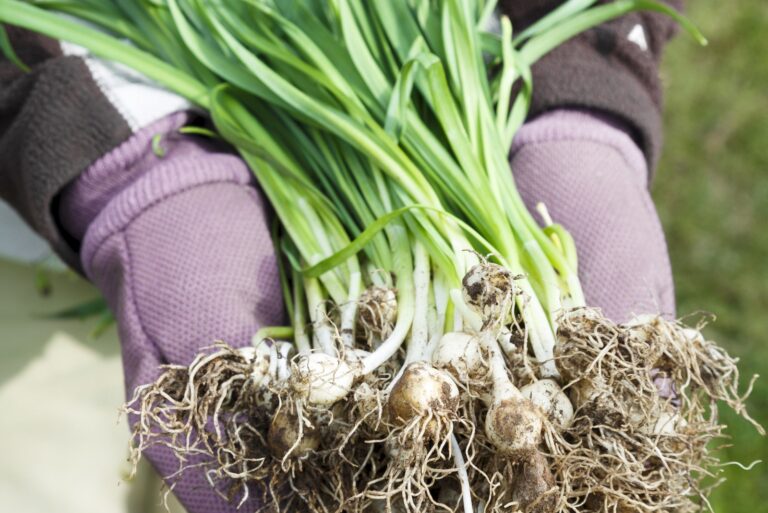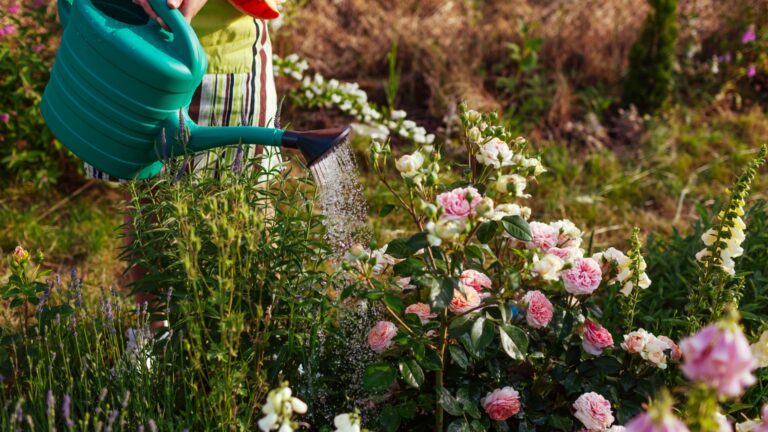Reasons Some Gardeners Skip Raking Leaves In New Hampshire
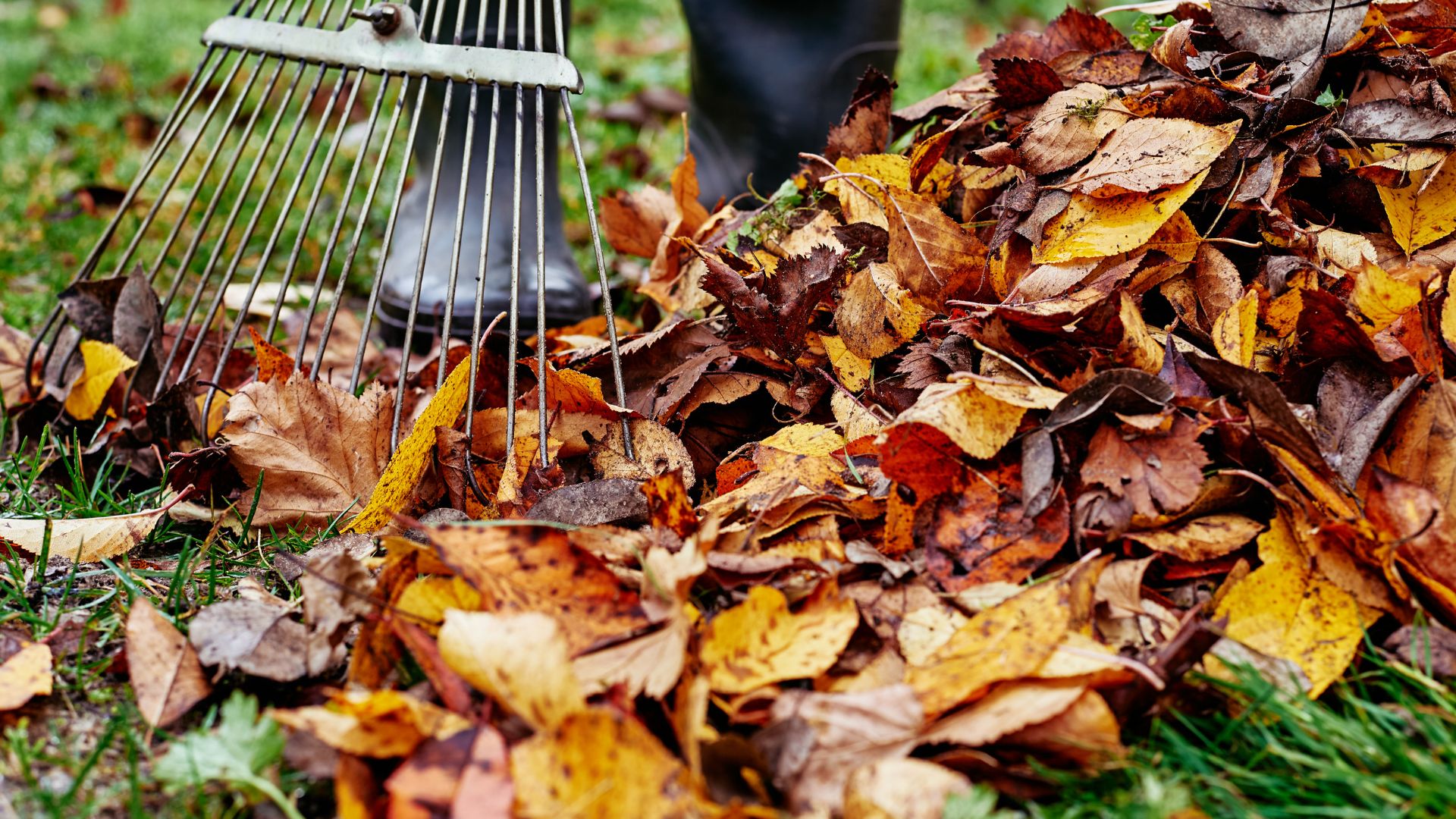
As fall sets New Hampshire aglow with brilliant reds and golds, homeowners face the age-old question: rake or let it lie? While many still spend weekends chasing every last leaf, more gardeners are choosing to leave them be.
And it’s not about skipping chores—it’s rooted in smart, eco-friendly thinking. Letting leaves stay put can actually benefit your yard. They break down into rich organic matter, feed the soil, and provide shelter for beneficial insects.
It’s a simple way to support your garden and local wildlife through the colder months. So before you grab that rake, consider the bigger picture. A little leaf litter can go a long way in creating a healthier, more resilient landscape—while saving you time and effort, too.
1. Natural Mulch Protection
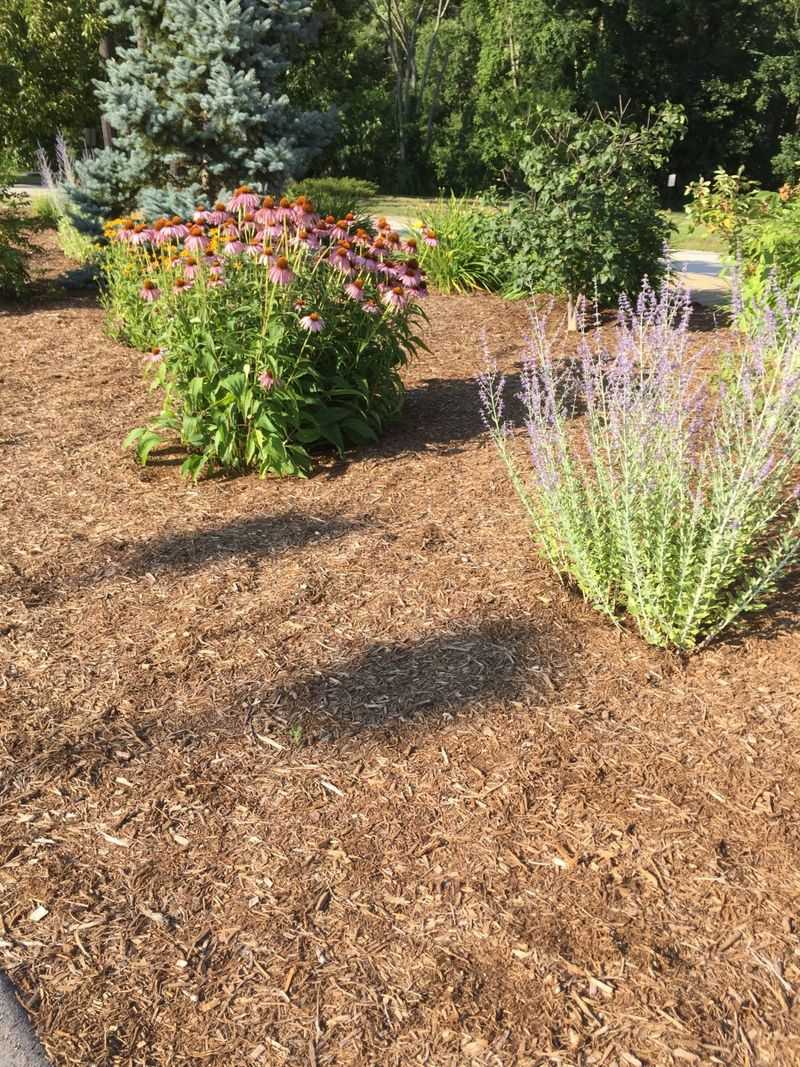
Fallen leaves create a protective blanket over garden beds during harsh New Hampshire winters. This natural mulch shields plant roots from extreme temperature fluctuations that can damage or kill perennials.
Many local gardeners report better spring growth in areas where leaves remained undisturbed through winter. The decomposing leaf layer also gradually releases nutrients that feed the soil.
I’ve noticed my hostas and ferns return stronger each year since I stopped clearing every leaf from my woodland garden border.
2. Wildlife Habitat Creation
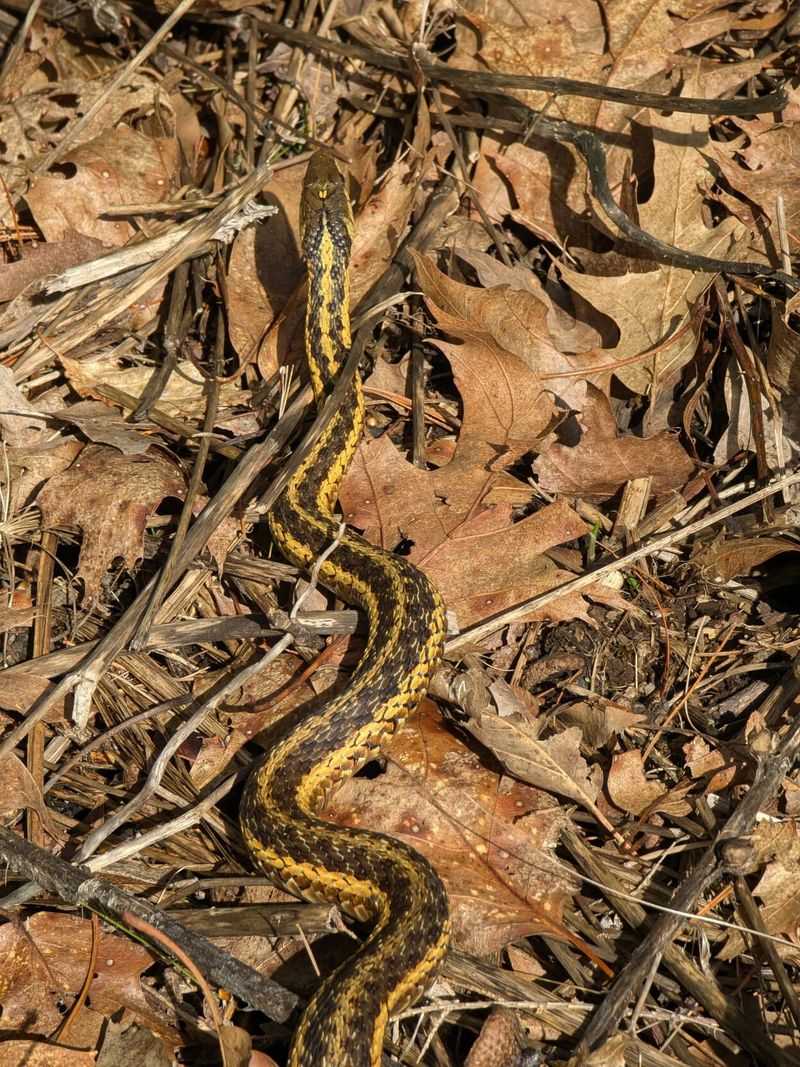
Leaf litter serves as crucial shelter for beneficial insects, salamanders, and other small creatures that help keep garden ecosystems balanced. Many butterfly species overwinter as chrysalides in fallen leaves.
Native bees often nest in the leaf layer or use pieces of leaves to build their homes. Without this habitat, these important pollinators might not survive to help your garden thrive next season.
Last spring, I discovered a family of toads living under the oak leaves I’d left along my fence line – natural pest control at work!
3. Soil Enrichment Benefits
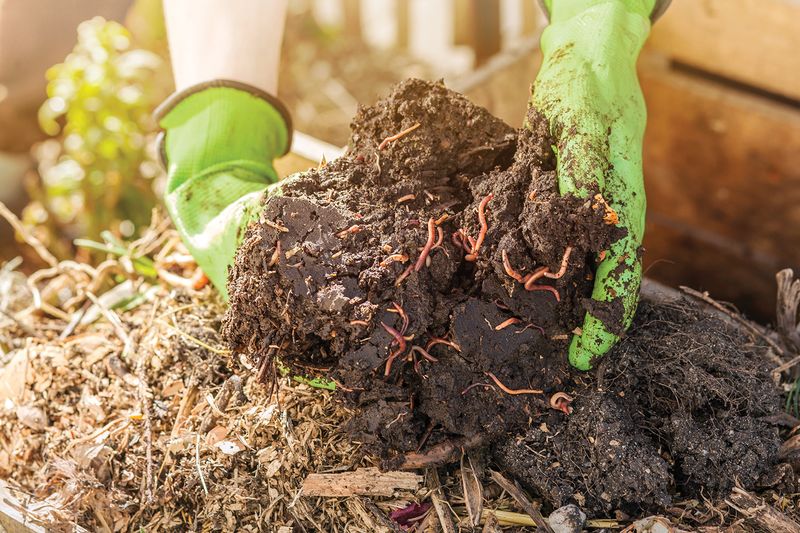
Decomposing leaves add valuable organic matter to New Hampshire’s often rocky soil. Earthworms pull leaf fragments downward, improving soil structure and water retention capabilities throughout the growing season.
The natural breakdown process releases carbon, nitrogen, and other essential nutrients slowly – exactly what plants need for healthy growth. Many experienced gardeners consider leaf litter nature’s slow-release fertilizer.
My vegetable garden’s soil quality has improved dramatically since I started incorporating shredded fall leaves instead of removing them completely.
4. Reduced Carbon Footprint
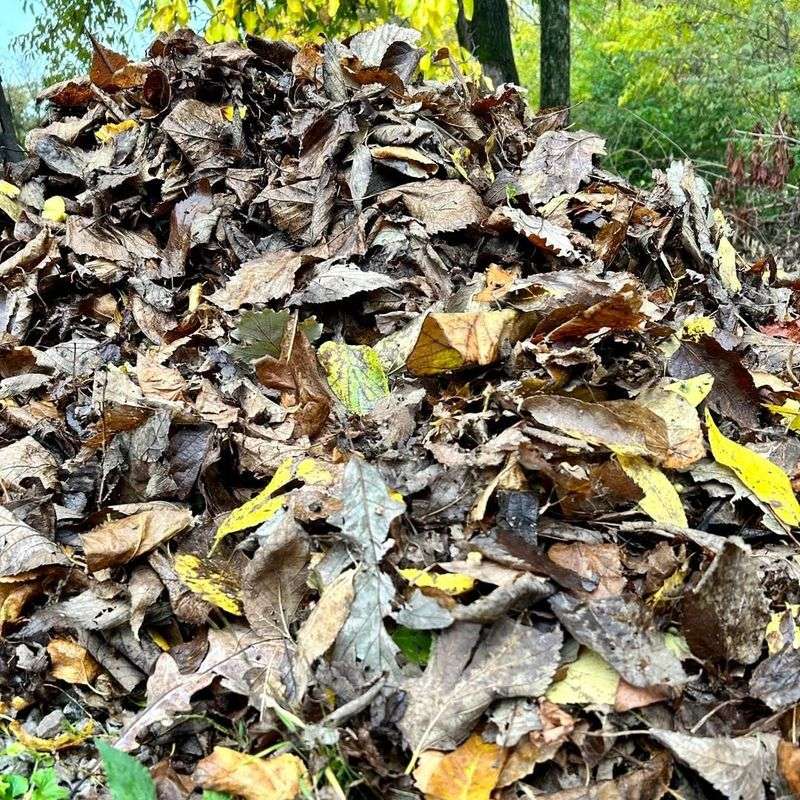
Gas-powered leaf blowers and municipal leaf collection services generate significant carbon emissions. Environmentally conscious New Hampshire gardeners often choose to keep leaves on-site to reduce their carbon footprint.
When leaves decompose naturally in place, they return carbon to the soil rather than releasing it during transport or processing. This simple practice aligns with growing climate concerns among Granite State residents.
The environmental impact really adds up – I calculated that my small property’s leaves would fill about eight large bags annually if I removed them all.
5. Mowing Instead Of Raking
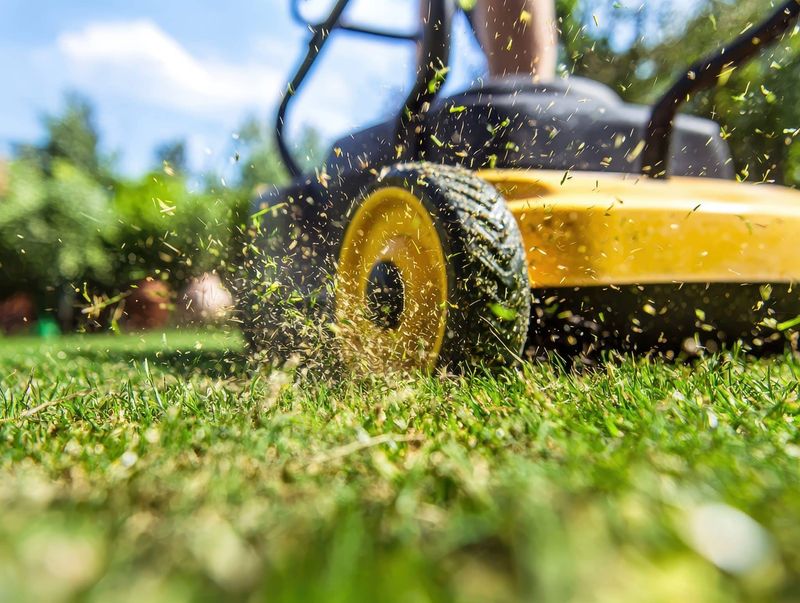
Running a mulching mower over fallen leaves chops them into tiny pieces that disappear between grass blades. This technique provides lawn benefits without the backbreaking work of raking New Hampshire’s abundant maple, oak and birch leaves.
Finely shredded leaves decompose quickly, releasing nutrients directly where grass roots can access them. Many local lawn specialists recommend this approach for moderate leaf coverage.
Since switching to mulch-mowing five years ago, I’ve noticed my lawn stays greener through New Hampshire’s dry summer periods without additional fertilizer.
6. Natural Weed Suppression
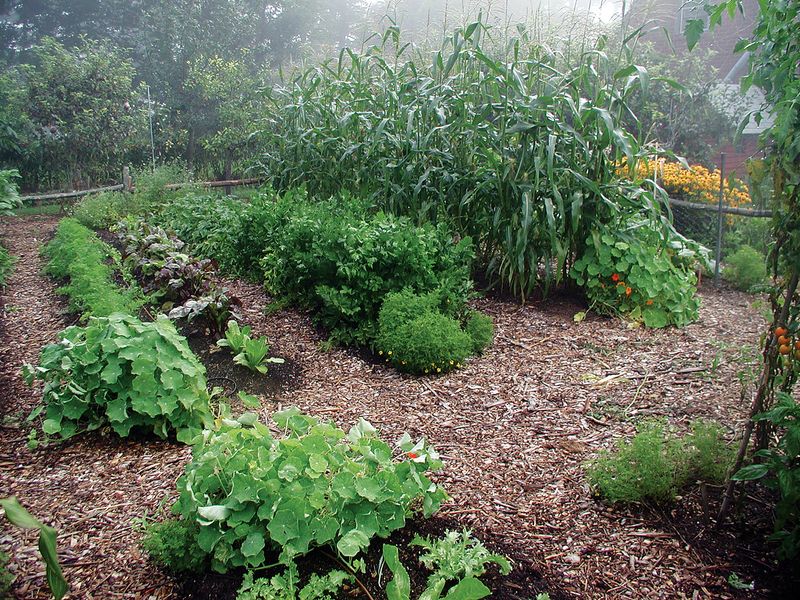
Leaf layers naturally suppress weed growth throughout New Hampshire’s growing season. A moderate covering of leaves blocks light from reaching weed seeds, preventing germination without chemical herbicides.
Gardeners who maintain a 2-3 inch leaf layer around perennials and shrubs report spending far less time pulling weeds. The suppression effect works particularly well in woodland gardens and naturalized areas.
My raspberry patch stays remarkably weed-free since I started directing maple leaves there each fall instead of bagging them for disposal.
7. Compost Creation Opportunity
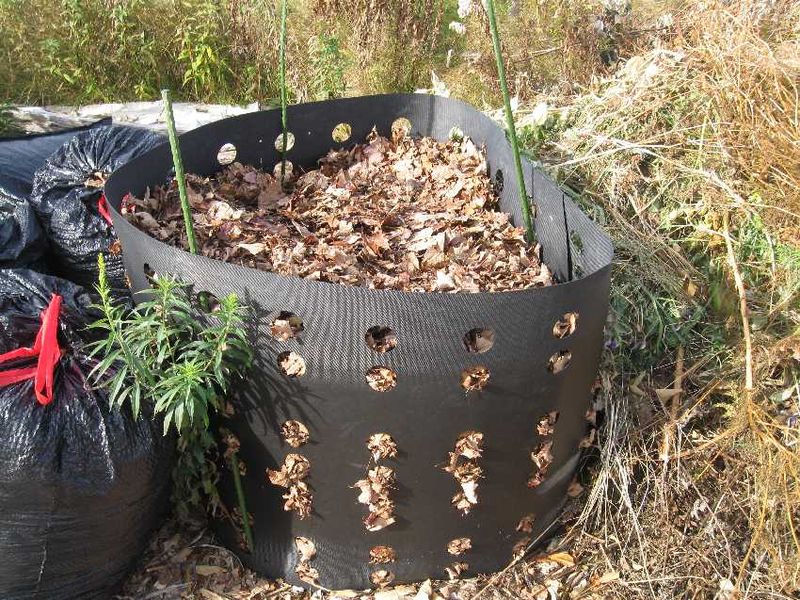
Fallen leaves provide the perfect carbon-rich “brown” material for compost piles. Many New Hampshire gardeners collect leaves selectively for composting rather than removing them from their property entirely.
Mixing autumn leaves with kitchen scraps and grass clippings creates balanced compost that improves garden soil structure. The state’s relatively short growing season makes homemade compost particularly valuable.
My simple leaf-based compost system produces enough rich amendment each year to top-dress all my vegetable beds without purchasing additional soil products.
8. Erosion Control Benefits
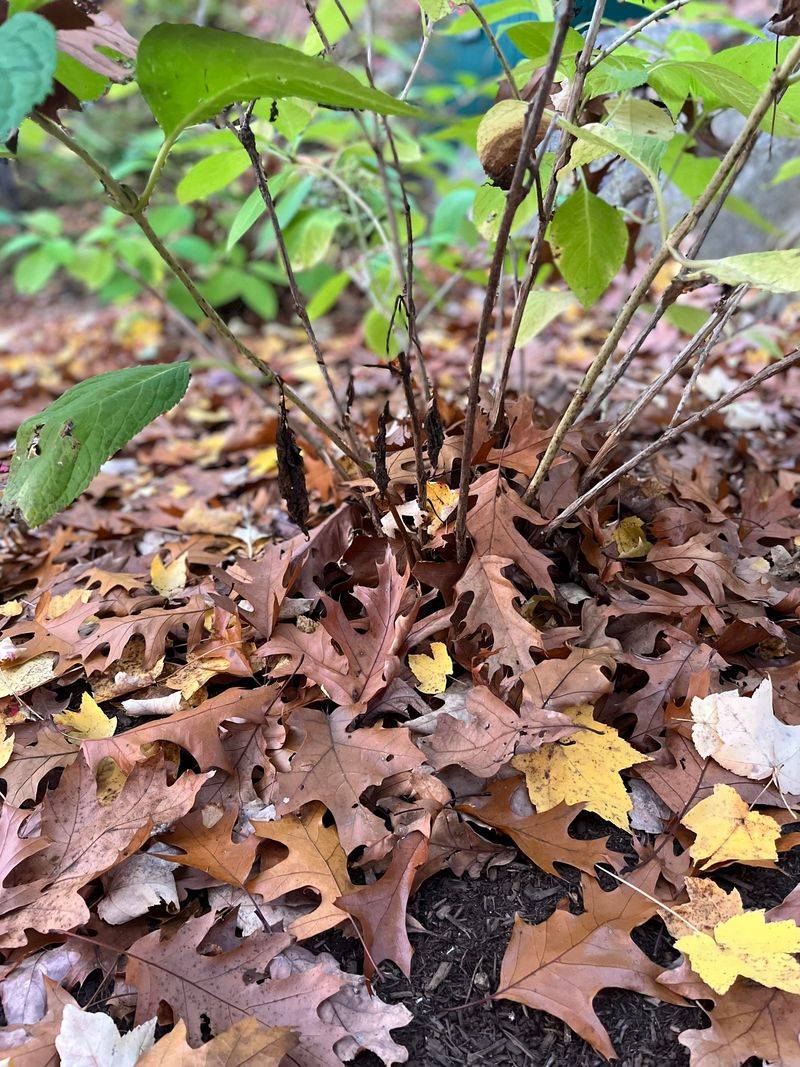
Leaves help prevent soil erosion on New Hampshire’s hilly properties during heavy rain and spring snowmelt. The leaf layer absorbs water impact and slows runoff, keeping valuable topsoil in place.
This natural erosion control is especially important on sloped garden beds where water can quickly wash away nutrients. Many landscape professionals now recommend strategic leaf placement on vulnerable areas.
After losing topsoil from my hillside garden during a particularly wet spring, I started directing maple and oak leaves there each fall – problem solved!
9. Snow Insulation Layer
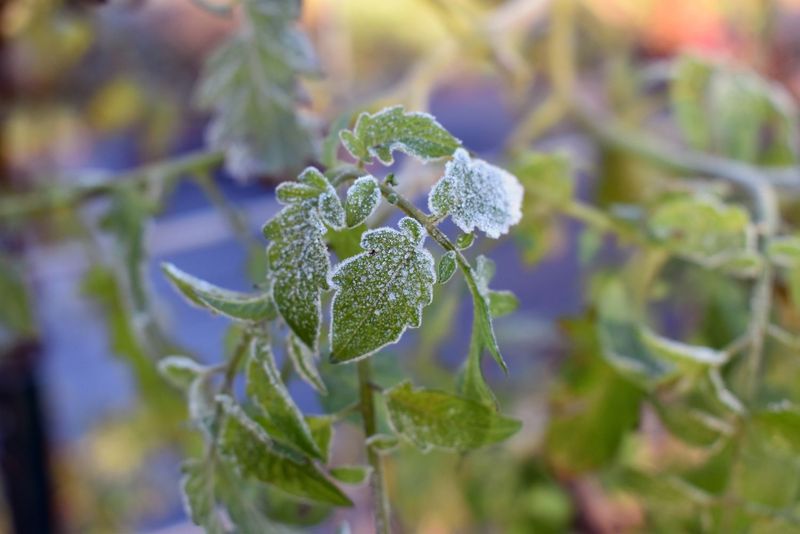
A thin layer of leaves provides valuable insulation when covered by New Hampshire’s deep winter snows. This natural blanket maintains more consistent soil temperatures, reducing frost heave that can damage plant roots.
Certain perennials benefit tremendously from this protection in USDA zones 4-5, which cover most of the state. The insulation effect is particularly valuable during winters with fluctuating temperatures.
My neighbor lost several hydrangeas during a January thaw-freeze cycle, while mine survived under their protective leaf covering.
10. Fungal Network Preservation
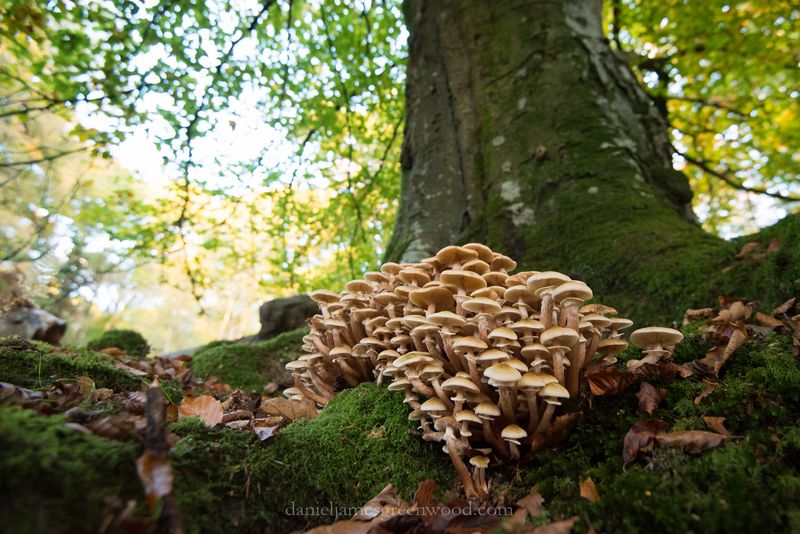
Undisturbed leaf layers help maintain beneficial mycorrhizal fungi networks in garden soil. These invisible partnerships between fungi and plant roots significantly improve nutrient uptake for many native New Hampshire species.
Excessive leaf removal can disrupt these delicate networks that take years to develop. Gardeners focused on native plant communities often minimize soil disturbance for this reason.
The woodland section of my garden has developed noticeably richer soil since I stopped raking it completely five years ago – the fungi are doing their important work!
11. Selective Leaf Management
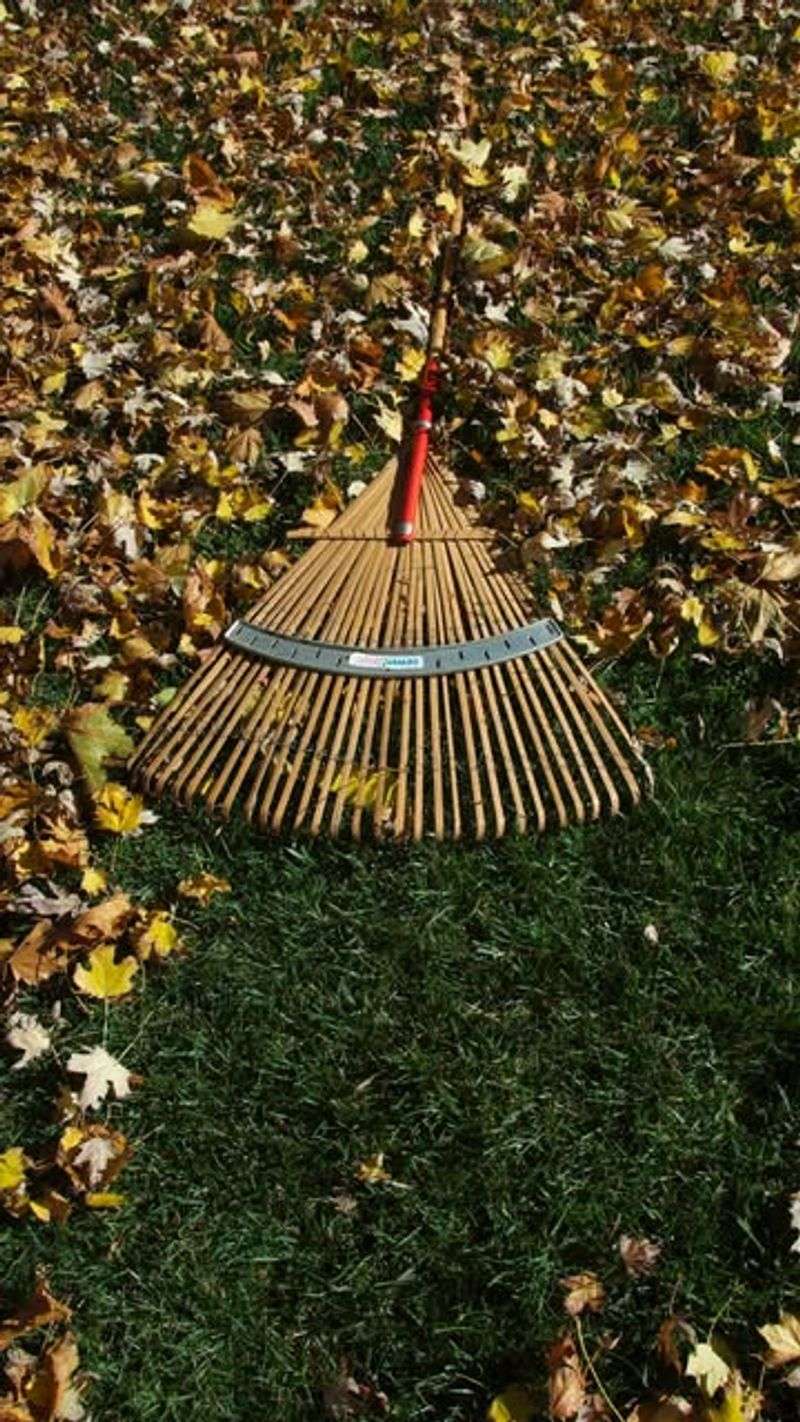
Many experienced New Hampshire gardeners practice selective leaf management – removing leaves from some areas while intentionally leaving them in others. This balanced approach provides ecological benefits without compromising garden aesthetics.
Leaves might be cleared from lawns and formal beds but directed toward woodland gardens, shrub borders, or compost bins. This targeted method reduces workload while maximizing benefits.
I remove leaves from my front yard for curb appeal but rake them directly into my backyard native plant garden – the best of both worlds!
12. Leaf Mold Production
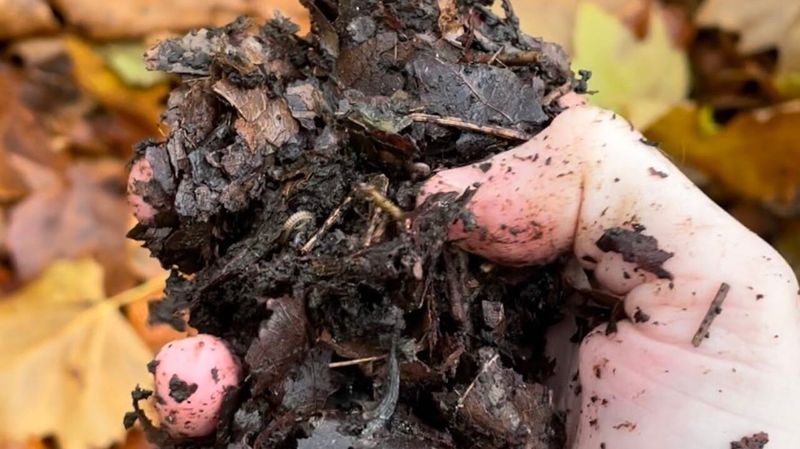
Collected leaves can be transformed into premium leaf mold – a soil amendment prized by New Hampshire gardeners. Simply piling leaves in an inconspicuous corner allows them to break down into dark, crumbly material perfect for improving soil structure.
Unlike regular compost, leaf mold requires minimal maintenance – just occasional moistening during dry periods. The finished product holds water like a sponge, reducing irrigation needs.
The maple leaf mold I produce behind my garage has become so popular with gardening friends that I now save bags of leaves specifically for this purpose.
13. Water Conservation Advantage
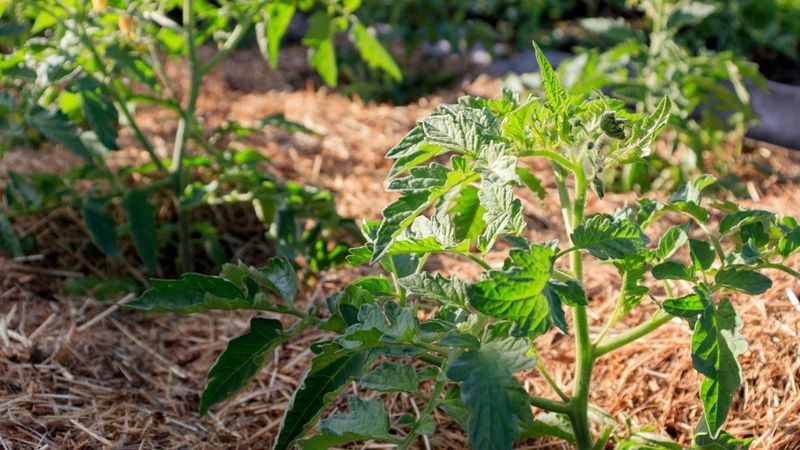
Leaf coverage significantly reduces water evaporation from garden soil during New Hampshire’s increasingly unpredictable summer dry spells. This natural mulch helps maintain consistent soil moisture without additional irrigation.
Gardens with established leaf layers often require 30-50% less supplemental watering during dry periods. The water-retention benefit is particularly noticeable in sandy soils common in parts of the state.
During last summer’s three-week dry spell, my partially leaf-mulched vegetable beds needed watering just once weekly while my neighbor watered almost daily.

